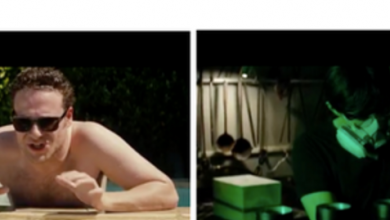Netflix’s “Atypical” Contains Problematic East Asian Stereotypes
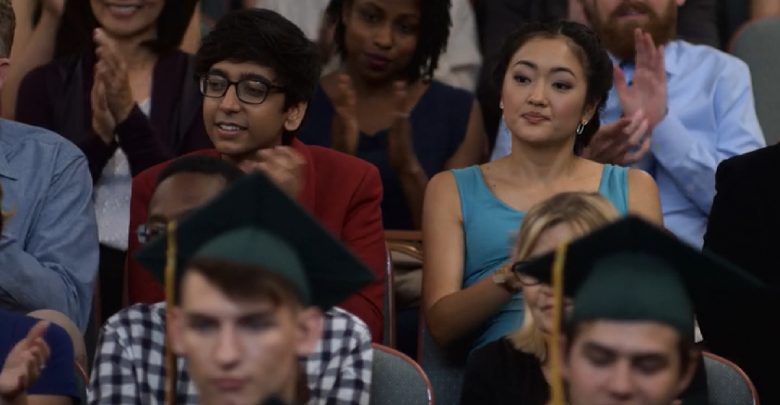
Netflix’s Atypical (which is now in its second season) has received generally favorable reviews from critics and audiences for its portrayal of a white, suburban, middle-class nuclear family and the social challenges that come with having a teenage son (Keir Gilchrist’s Sam Gardner) on the autistic spectrum. Given that the show’s creator – writer/producer Robia Rashid – describes herself as “half-Pakistani, half-white”, it is not surprising that the show features a significant amount of Asian-American representation as well. Japanese-American actress Amy Okuda and Indian-American actor Nik Dodani both have significant roles throughout the series. There is, unfortunately, a subtle level of stereotyping that occurs with the show’s East Asian characters.
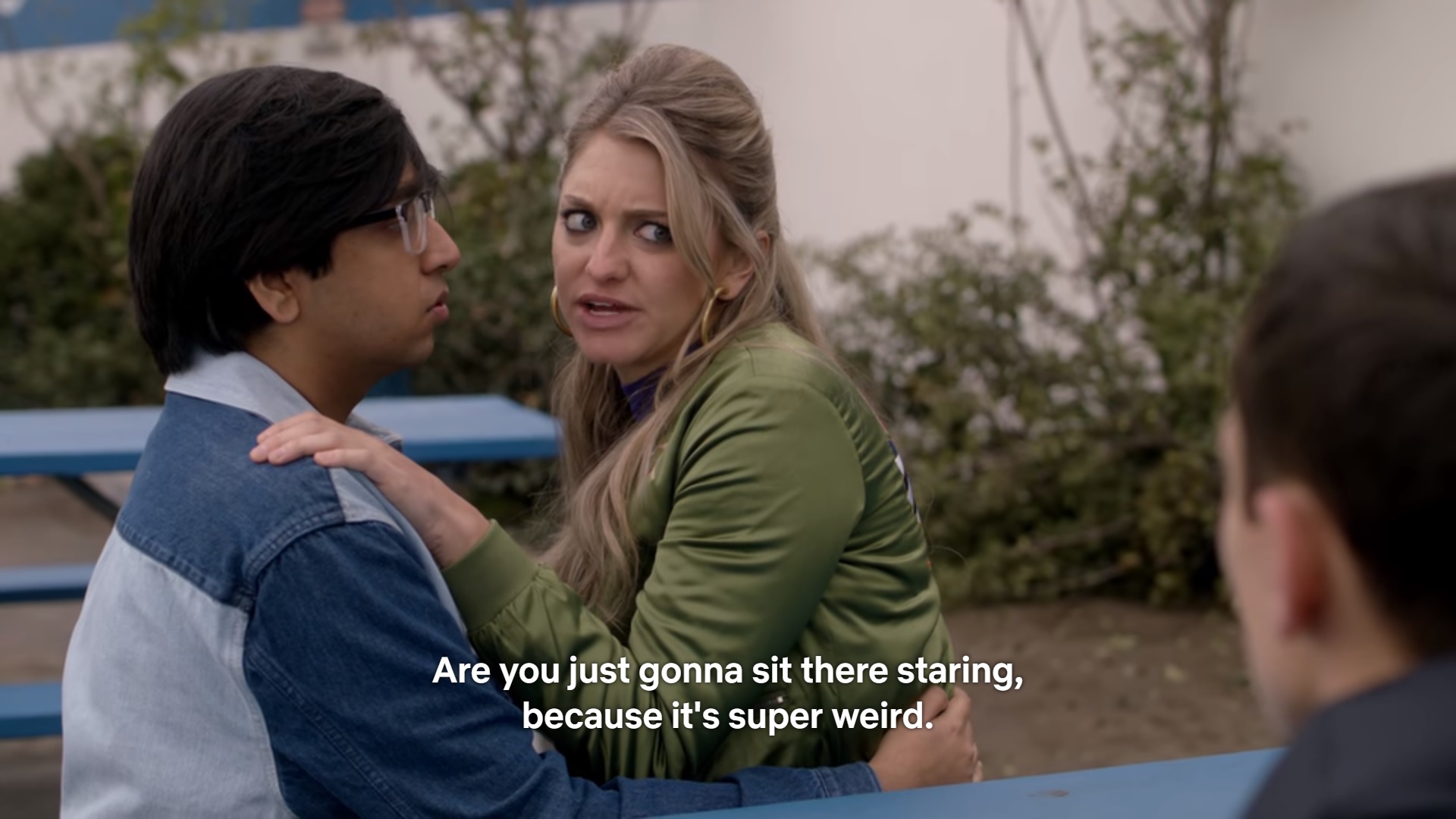
Nik Dodani provides comic relief as Zahid, Sam’s best friend and colleague – a womanizing tech store employee with plenty of dating advice to offer.
While Dodani plays against model minority stereotypes as a blue-collar, “foul-mouthed lothario right out of a Judd Apatow comedy”, Okuda, unfortunately, plays yet another Asian-American female character that is presented as a romantic/sexual interest for her white male counterparts. The entirety of season 1 revolves around Sam’s attempts to navigate the nuances of sexual attraction as a hormonal young man with autism. As his therapist, Okuda’s Dr. Julia Sasaki encourages him to fulfill his desire to be loved without realizing that she has become the object of his affections. At one point, Sam even climbs into her house through an open window to leave behind a box full of chocolate-covered strawberries. (His goal is thwarted by his father, who belatedly realized that Sam is in love with his therapist and insisted that he pursue a girl of the same age).
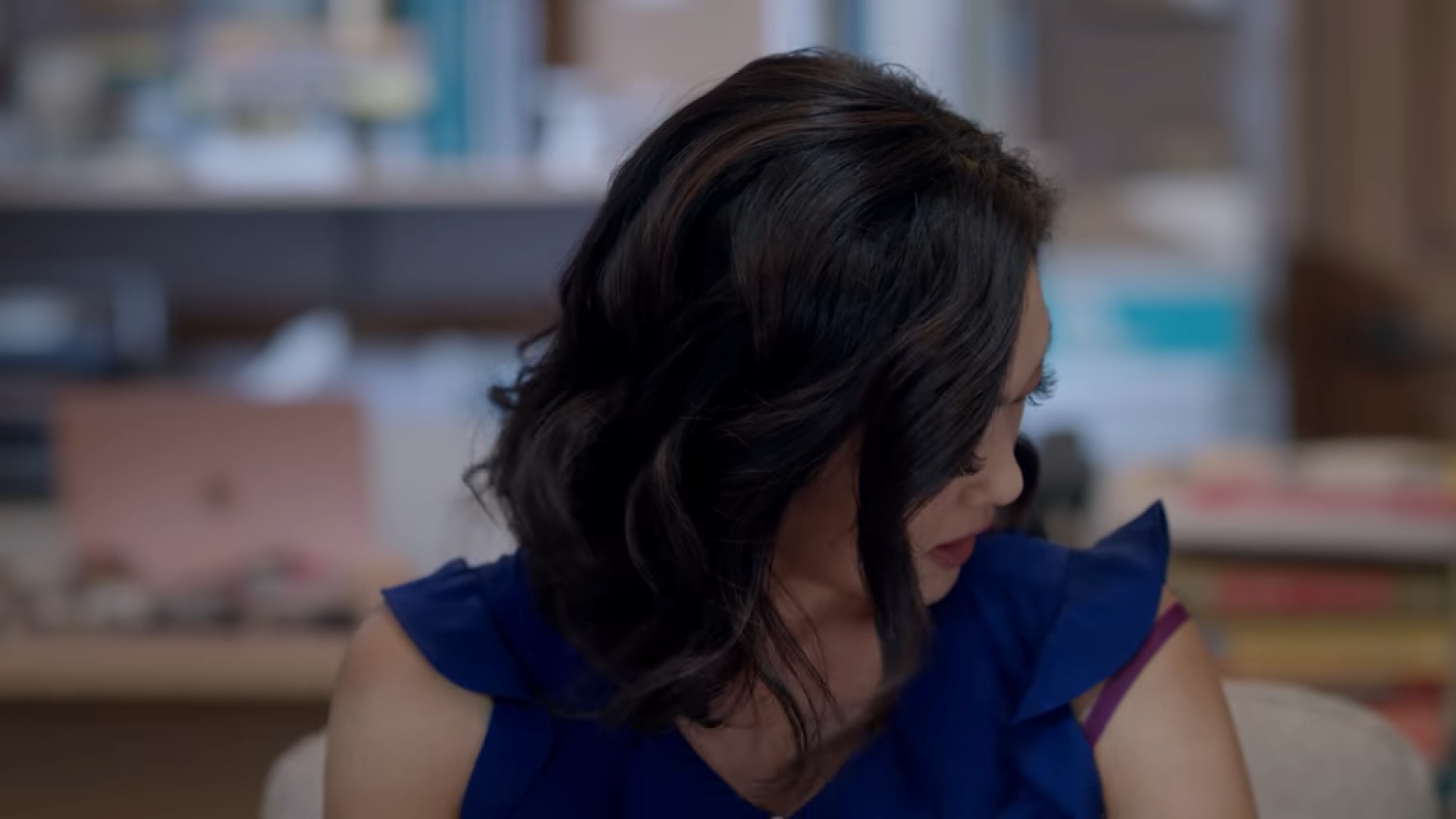
Julia Sasaki is sexualized from the get-go: “I can see your bra. It’s purple”.
In his haste to exit Julia’s house, Sam drops one chocolate-covered strawberry. This leads Julia to suspect that her longtime boyfriend Miles is cheating on her. They eventually break up, but a fractured foot leads Julia to the realization that she is pregnant.
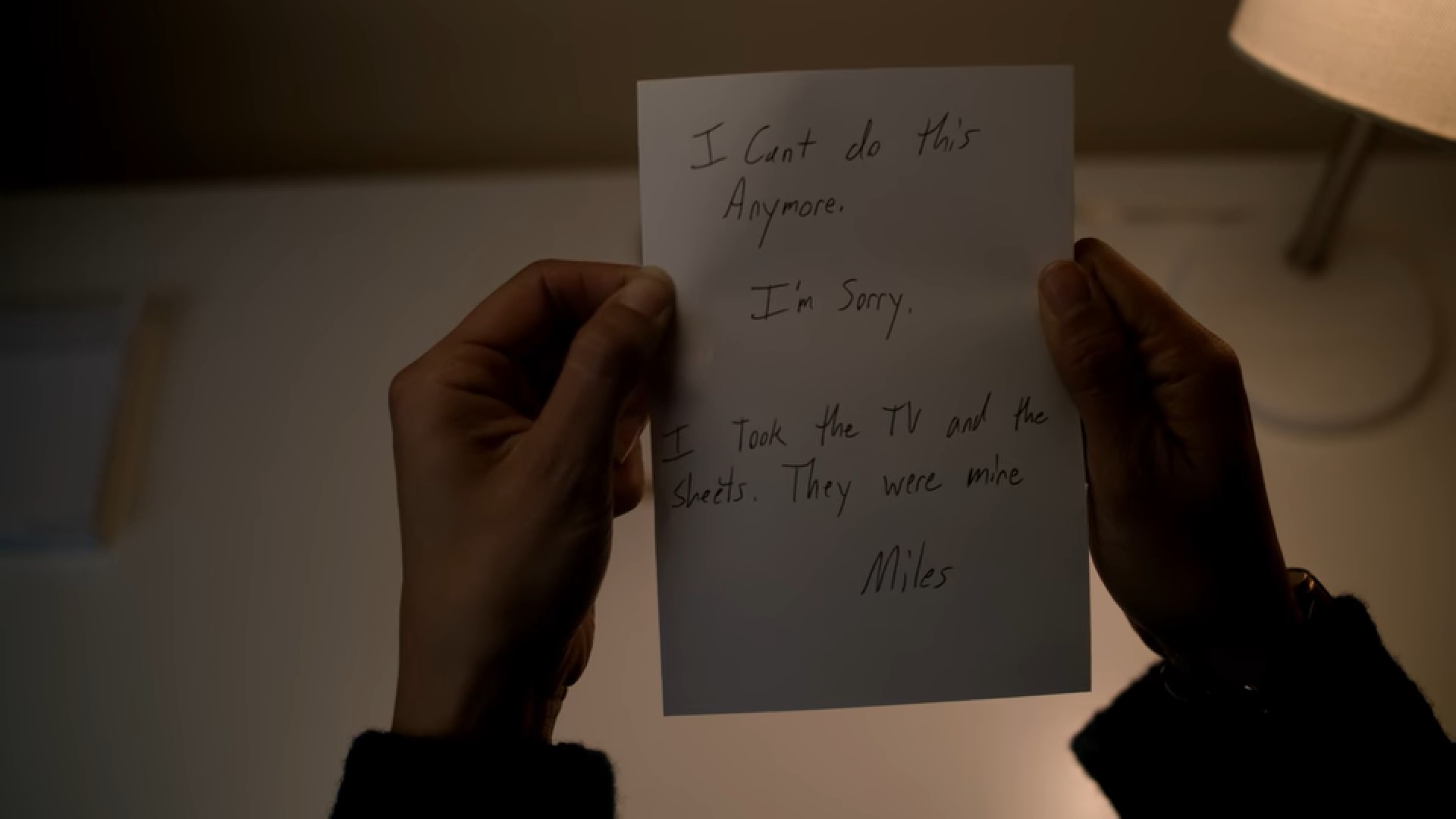
At the end of season one, Miles is seen for the first time as he gets down on one knee to propose to Julia: “You win, let’s get married”. Julia reacts in disbelief at Miles’ anti-romantic statement.
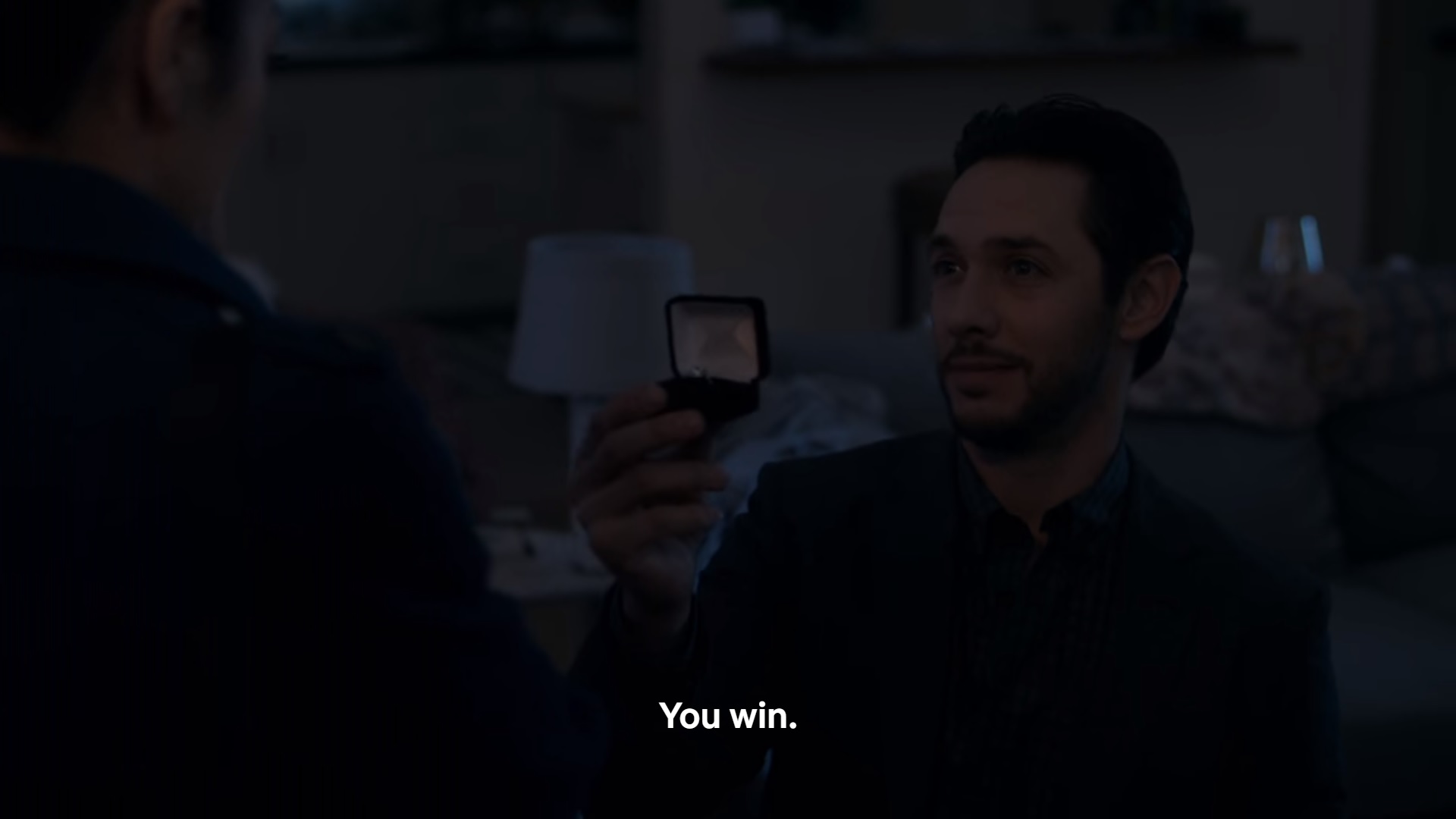
In episode 3 of season 2 (“Little Dude and the Lion”), a couples therapy season reveals that Julia has still not come to terms with her pregnancy or the proposal (“I said, “Give me more time”). The subplot of Julia’s love life – which is never granted as much significance or empathic identification as any of the Gardner family members’ romantic relationships – finally reaches an unceremonious conclusion in episode 8 of season 2 (“Living at an Angle”).
Julia: Oh, hi. So I’ve been thinking about this a lot and I know it’s what people do, get married to have kids, but I just don’t think I want to settle. I think we both deserve something … special.
Miles: Cool, cool. I’m in Africa.
Julia: What?
Miles: I took a job with Doctors Without Borders. I’m gonna be here for two years.
Julia: Were you gonna tell me?
Miles: I’m telling you now.
Julia: Ok. Well, I definitely made the right decision.
Miles: Oh, broken clavicle. Nice. Gotta motor. Text me when the kid’s born. [Hangs up]
Julia: Yup, daddy’s a douchebag.
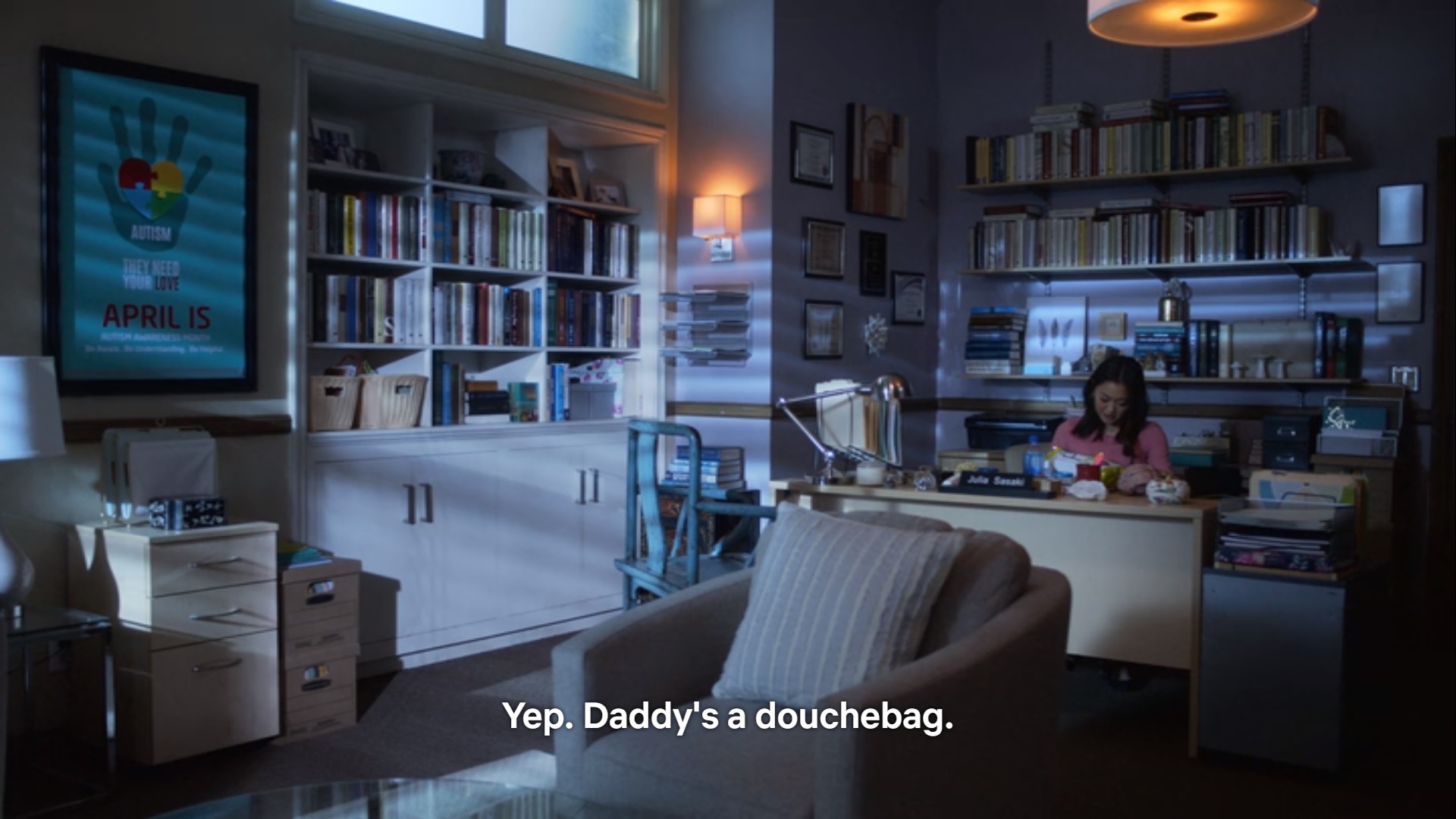
Julia’s characterization also implicitly excludes the East Asian American community from the ideal of inclusivity towards individuals who are on the spectrum. In episode 6 of season 1 (“The D-Train to Bone Town”), she reveals that her parents were chronically ashamed of her brother’s condition and failed to provide him with the treatment he needed:
“My brother is autistic. Jesse. He’s not as high functioning as Sam. He’s minimally verbal. As a kid, we couldn’t even walk through a parking lot because he’d have to stop behind every car and read the license plate. But my parents didn’t acknowledge he was on the spectrum till he was 16.
They kept insisting it was a speech issue and that he’d grow out of it. The saddest thing in my life is wondering what he would’ve been like if had he gotten interventions early. It’s why I do what I do. They didn’t want to acknowledge it because they were ashamed. They were afraid of the social isolation that comes with having a kid who’s different. And I feel for them. You just want to pretend nothing’s wrong.”
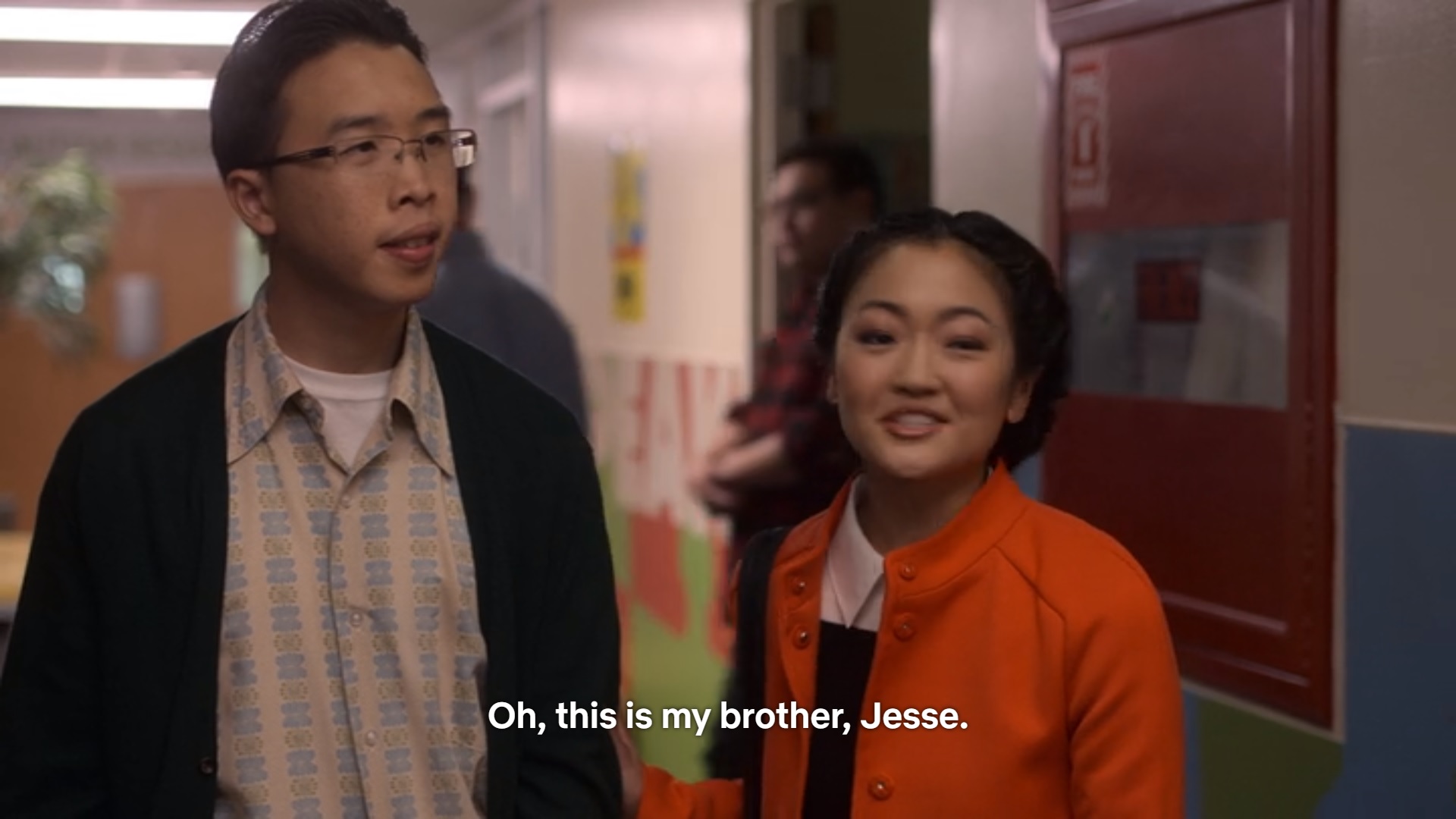
Julia accompanies Jesse (Shawn Ray Gong) to a speech therapy session in episode 4 of season 2.
Jesse only appears in one brief scene and is the only Asian American individual with autism that appears in the entire show. There are no Asian American teenagers in Sam’s support group for teens with autism (apart from Sam, all of them are portrayed by actors with autism). Likewise, there are no Asian American parents in the support group that Sam’s mother attends. While it is true that Asian American families often prefer to hide the fact that a family member is on the spectrum, Atypical could have done much more to alleviate this stigma by featuring exceptions to the rule.
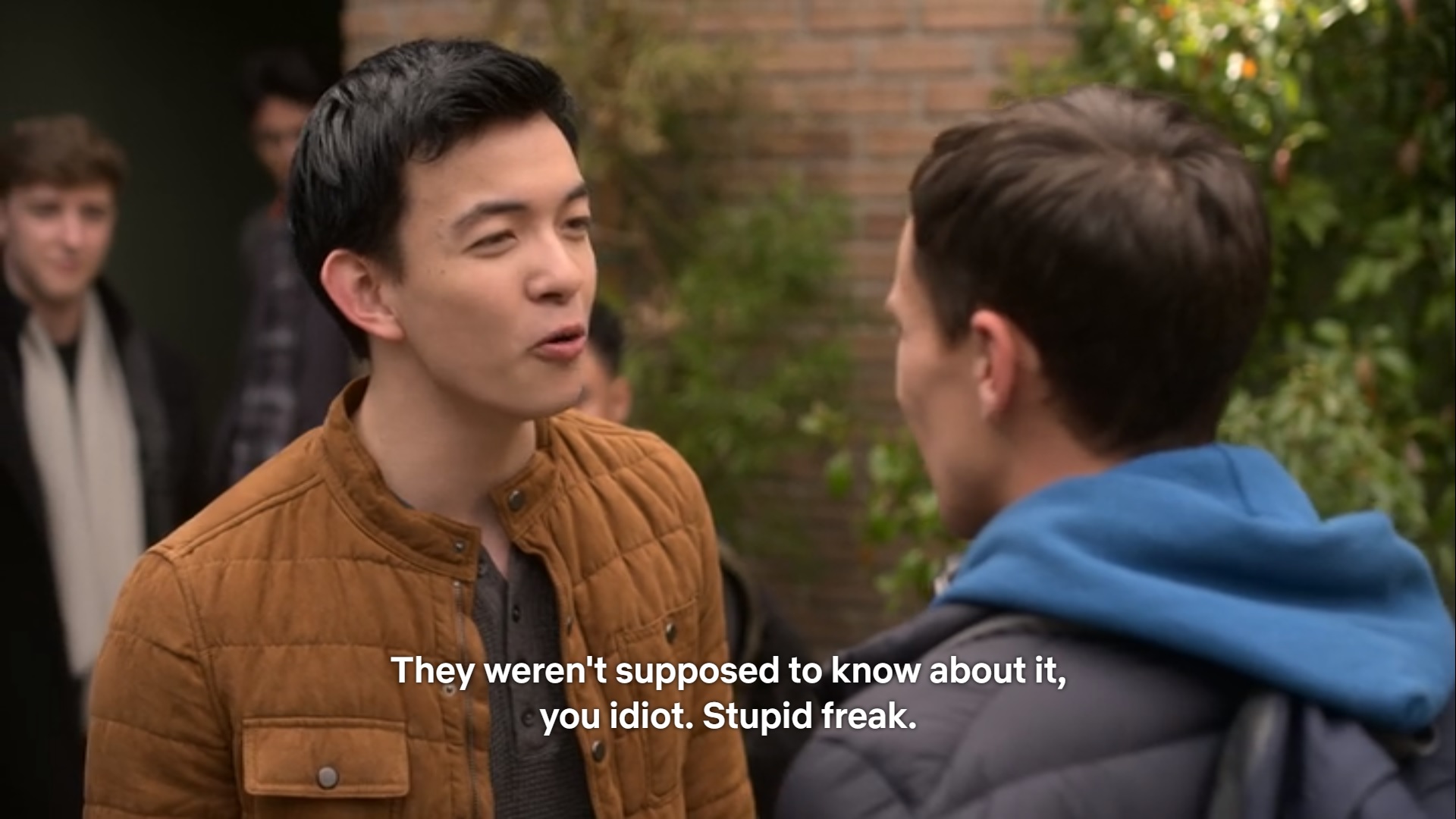
Hapa character Arlo (Major Curda) is the show’s meanest character.
Finally, it is worth noting that Atypical does not thoroughly reinforce the common tendency to de-sexualize East Asian men. In episode 6 of season 2 (“The Egg Is Pipping”), the show reveals that Sam’s schoolmate Arlo is actually half-white and half-East Asian. The problem, however, lies in how both Arlo and his father Theo (West Liang) are presented as being insensitive towards individuals with autism. While Arlo is not the only one who bullies Sam in school, he is singled out as being especially mean: he attempts to trick Sam to donate all his money ($700) to fund an unofficial party and then stomps on Sam’s phone when the party is canceled. Likewise, Sam’s parents’ attempts to make amends with Theo and his wife are thwarted by Theo’s insensitivity:
Theo: And you know, to be honest, it makes sense that Holly and the kids didn’t want to hang around Sam. I mean, he was a little off back then.
Doug (Sam’s father): What?
Theo: You know, always yelling and making a scene. He was hard to deal with. Never mind, it’s all good. How about another drink? Hey, try this Macallan, aged 30 years. Figured you would appreciate that.
Doug: You know … Sam has been through a lot.
Theo: We don’t need to talk about all that.
Doug: I think we do. You know, he has autism, that’s a real thing. I don’t think it’s something that he, or we, deserved to be punished for.
Theo: Dude, just try to get where we’re coming from. Am I supposed to force my kids to hang out with someone who yells and hits them? That would be punishing us.
Doug: So, what are you saying? Hanging out with Sam is like a punishment?
Theo: Dude, I’m just trying to be honest, man.
Doug: Maybe if you had exposed your children to different types of kids, you wouldn’t have raised Arlo to be an insensitive jerk.
Theo: Woah.
Doug: Oh, I’m just trying to be honest, man.
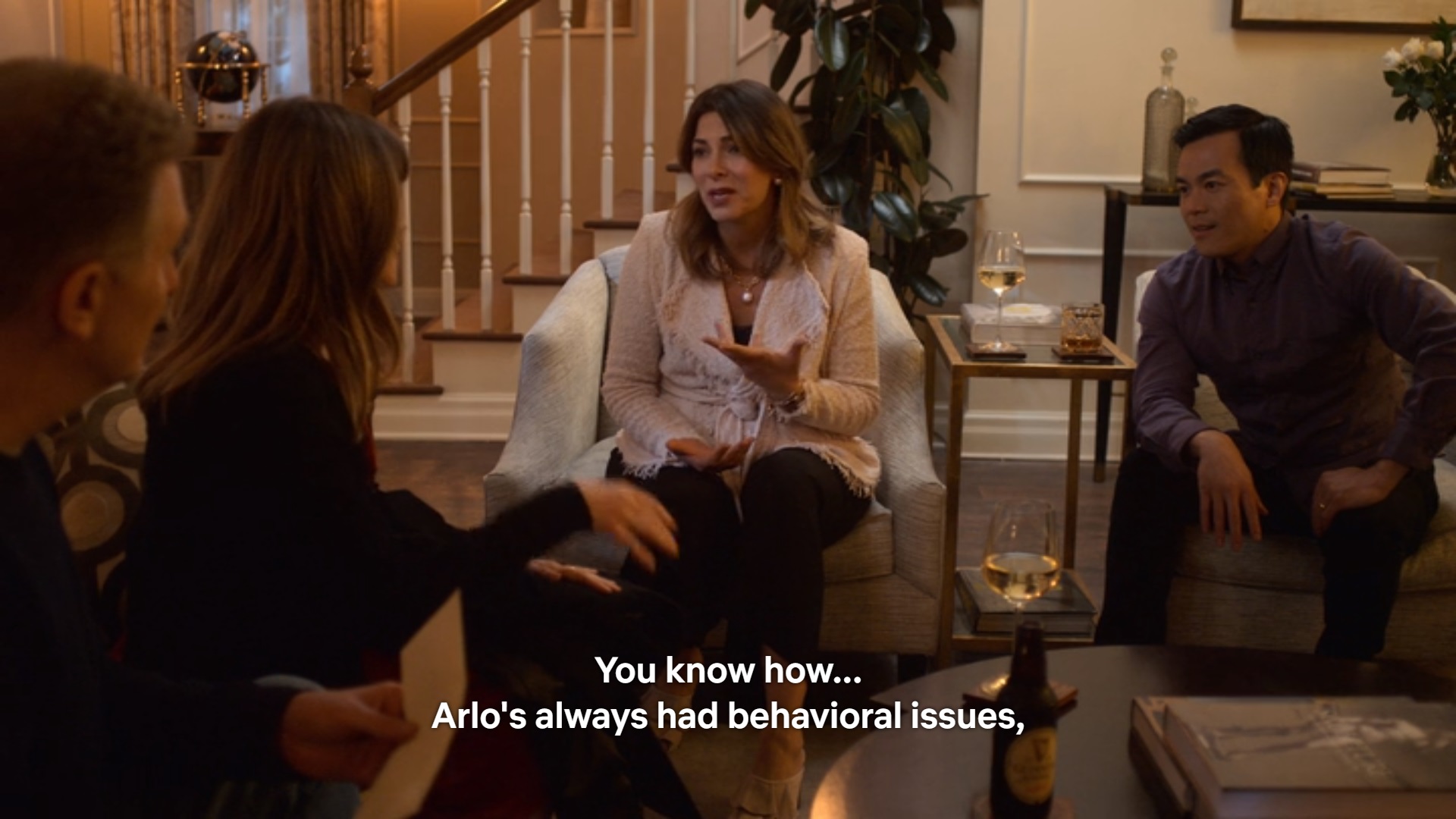
Sams’ parents ultimately fail to make amends with Arlo’s parents.
As of October 2018, Netflix has not revealed if Atypical will be renewed for a third season. As many critics have observed, there is a growing need for more diversity in representations of autism narratives in popular media. One can only hope that Atypical can evolve to fill this void while also staying clear of stale East Asian stereotypes.
As of July 2018, Netflix has phased out user-submitted reviews. You can voice your concerns by contacting them on Twitter (@netflix), calling them at 800-852-6334, or by submitting a user review on Metacritic.
-
OFFENDER: Netflix
CATEGORY OF OFFENSE: Denigration ( Reinforces Stereotypes)
MEDIA TYPE: TV Show
OFFENSE DATE: September 1, 2018





